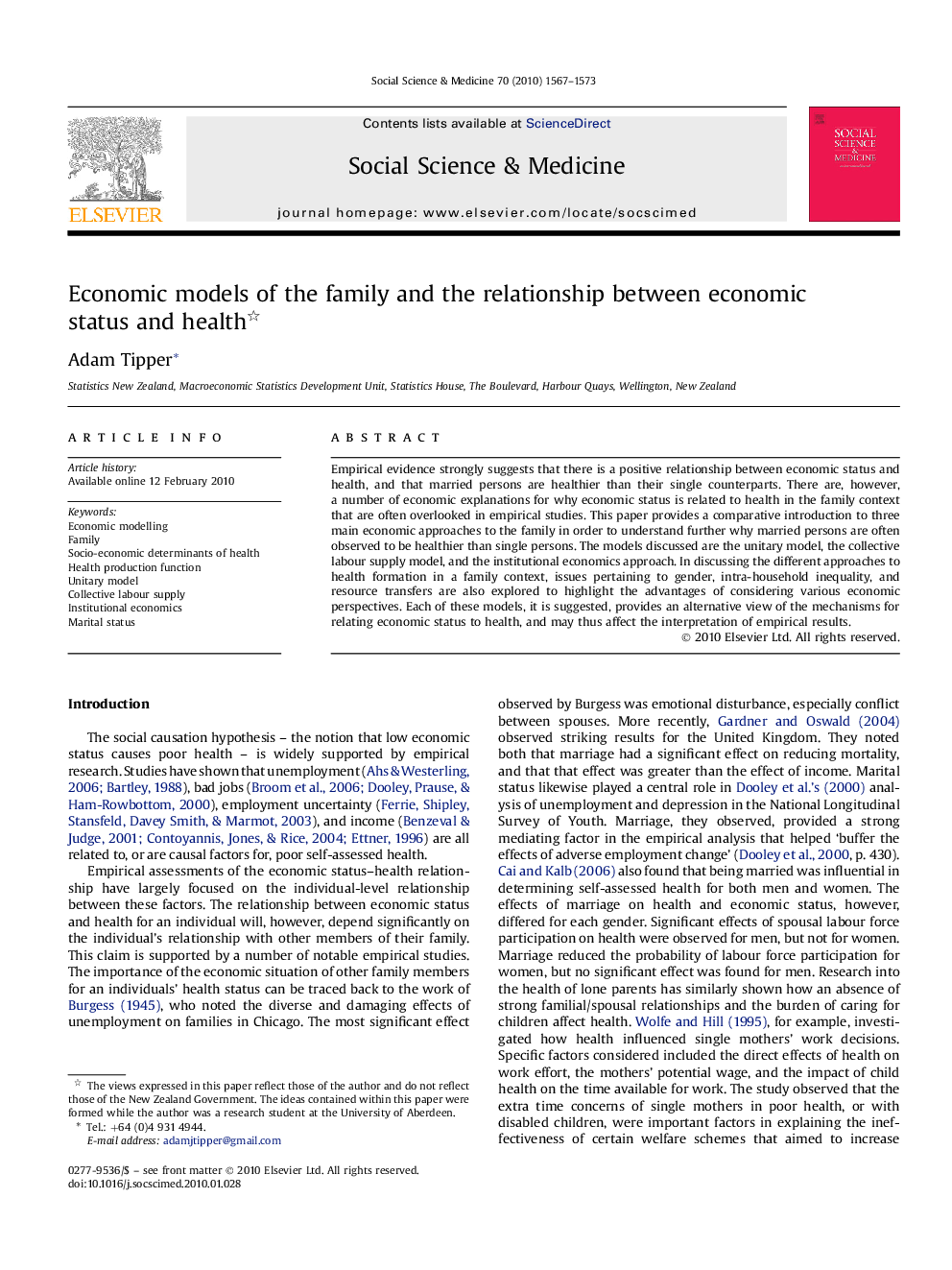| Article ID | Journal | Published Year | Pages | File Type |
|---|---|---|---|---|
| 953140 | Social Science & Medicine | 2010 | 7 Pages |
Empirical evidence strongly suggests that there is a positive relationship between economic status and health, and that married persons are healthier than their single counterparts. There are, however, a number of economic explanations for why economic status is related to health in the family context that are often overlooked in empirical studies. This paper provides a comparative introduction to three main economic approaches to the family in order to understand further why married persons are often observed to be healthier than single persons. The models discussed are the unitary model, the collective labour supply model, and the institutional economics approach. In discussing the different approaches to health formation in a family context, issues pertaining to gender, intra-household inequality, and resource transfers are also explored to highlight the advantages of considering various economic perspectives. Each of these models, it is suggested, provides an alternative view of the mechanisms for relating economic status to health, and may thus affect the interpretation of empirical results.
